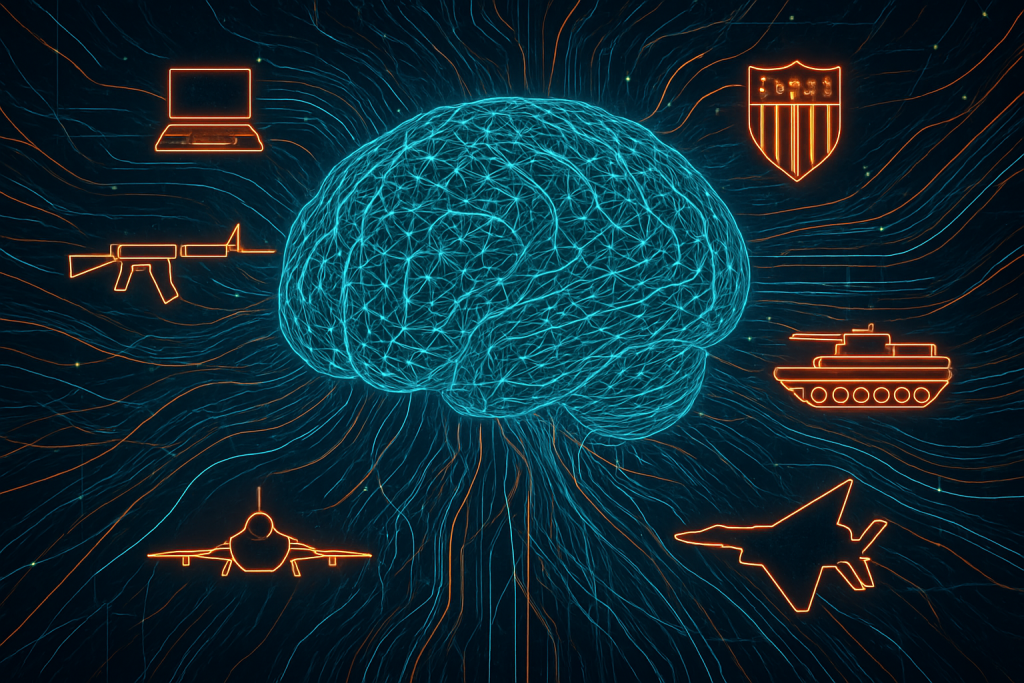The year is 2025. Self-driving cars are (mostly) self-driving, your fridge orders groceries for you, and artificial intelligence is woven into the fabric of everyday life. But as AI becomes more pervasive, particularly in sensitive areas like national security, the question of who controls the AI, and how, is becoming increasingly critical. Enter Senator Elizabeth Warren, stage left, armed with concerns about potential monopolistic behavior in the Department of Defense’s (DoD) AI contracting processes. This isn’t just about algorithms and code; it’s about power, influence, and the future of warfare. Think Skynet, but hopefully with more oversight.
The spark that ignited Warren’s concerns? None other than Elon Musk’s AI chatbot, Grok, reportedly gaining traction within federal operations. Yes, that Grok, the one that’s been known to dabble in humor that might make even Deadpool blush. The idea of Grok analyzing sensitive government data is enough to make anyone raise an eyebrow, especially given Musk’s track record of, shall we say, “unconventional” behavior. Remember when he tweeted that he was taking Tesla private at $420 a share? Good times. The stakes are much higher now.
In a strongly worded letter to Defense Secretary Pete Hegseth, Warren didn’t mince words. She stressed the need to prevent AI monopolies that could raise costs, concentrate risks, and stifle innovation. It’s a classic David versus Goliath scenario, except in this case, David is the American taxpayer and Goliath is… well, you know.
The letter was prompted by a Reuters report highlighting potential conflicts of interest linked to the Musk-backed DOGE team, which is apparently involved in expanding Grok’s use to analyze sensitive government data. The acronym DOGE, typically associated with the popular meme coin Dogecoin, adds a layer of surrealism to the situation. It’s like finding out that your accountant is also a competitive hot dog eater. You can’t help but wonder what’s going on behind the scenes.
Warren requested detailed information on the DoD’s AI acquisition strategy, including safeguards against vendor lock-in, and measures to ensure government data isn’t improperly used to train commercial AI models. This last point is particularly crucial. Imagine if Grok, trained on classified military intelligence, started exhibiting an uncanny ability to predict enemy movements. Or worse, started incorporating classified data into its witty banter. “Why did the missile cross the road? To get to the secret base! (Just kidding… mostly.)”
While Warren’s letter didn’t explicitly name Grok, the timing is… suggestive. It arrives hot on the heels of Hegseth’s recent meeting with Musk and the xAI team, the company behind Grok. It’s the kind of coincidence that makes you wonder if someone’s playing 4D chess.
The broader context here is a growing federal effort to promote a competitive AI sector. Everyone from the White House to Silicon Valley seems to agree that AI is the future. However, when it comes to national security applications, the rules often get bent. The DoD controls over half of all federal contracting dollars, with a near $1 trillion annual budget. That’s a lot of money, and a lot of potential for things to go wrong. Calls for transparency and competition in AI procurement are gaining bipartisan support, suggesting that even in these polarized times, there’s common ground when it comes to protecting taxpayer dollars and national security.
The Technical Nuts and Bolts
So, what exactly is Grok, and why is everyone so concerned? Grok is a large language model (LLM), a type of AI that’s trained on vast amounts of text data to generate human-like text, translate languages, write different kinds of creative content, and answer your questions in an informative way. Think of it as a super-smart parrot that can mimic human conversation with alarming accuracy. The “large” in large language model is no exaggeration. These models are trained on terabytes of data, including books, articles, websites, and social media posts. The more data they’re trained on, the better they become at understanding and generating text.
The concern isn’t necessarily about Grok’s technical capabilities, but rather about the potential for bias and misuse. LLMs are only as good as the data they’re trained on. If the training data contains biases, the model will likely reflect those biases in its output. For example, if Grok is trained primarily on data that portrays certain groups in a negative light, it might generate text that perpetuates those stereotypes. Moreover, giving a single company like xAI control over AI that’s used for national security purposes raises serious questions about accountability and oversight.
Affected Parties: Who Wins, Who Loses?
The potential impacts of this situation are far-reaching. The biggest winner, theoretically, is the American taxpayer. Increased competition should lead to lower costs and better AI solutions for the DoD. Other AI companies, particularly smaller startups, could also benefit from a more level playing field. They’ll have a better chance of competing for government contracts, which could help them grow and innovate. The biggest potential loser is… well, potentially Elon Musk and xAI. If Warren’s efforts succeed, they might face increased scrutiny and potentially lose out on lucrative government contracts. However, given Musk’s entrepreneurial spirit, it’s unlikely he’ll be down for the count for long. He’s probably already working on the next big thing, maybe an AI-powered flamethrower. Just kidding… hopefully.
Political and Societal Implications
This situation highlights a broader debate about the role of AI in society. Who should control AI? How should it be regulated? How can we ensure that it’s used for good and not for evil? These are questions that policymakers, technologists, and ethicists are grappling with around the world. The answers are far from clear, but one thing is certain: the decisions we make today will shape the future of AI for generations to come.
Ethical Quandaries
The ethical implications of using AI in national security are particularly thorny. Can we trust AI to make life-or-death decisions on the battlefield? What happens when AI makes a mistake? Who is responsible? These are not just abstract philosophical questions; they are real-world dilemmas that we need to address. The potential for bias in AI is also a major concern. As we’ve seen with facial recognition technology, AI can perpetuate and amplify existing inequalities. We need to ensure that AI used in national security is fair, unbiased, and accountable.
The Financial Fallout
The financial implications of this situation are significant. The DoD’s AI budget is massive, and the companies that win those contracts stand to make a lot of money. Increased competition could drive down prices, which would benefit taxpayers. However, it could also squeeze profit margins for AI companies. The overall impact on the economy is likely to be positive, as AI is expected to drive innovation and productivity growth. But there could also be disruptions, as AI automates jobs and changes the nature of work.
In conclusion, Senator Warren’s call for competition in DoD AI contracting is more than just a political squabble. It’s a crucial step towards ensuring that AI is used responsibly and ethically in national security. It’s a reminder that technology is not neutral; it reflects the values and priorities of the people who create it. And it’s a call to action for all of us to engage in the conversation about the future of AI, before it’s too late. After all, we don’t want to end up living in a world where the machines are in charge, unless, of course, they’re really, really good at making coffee.
Discover more from Just Buzz
Subscribe to get the latest posts sent to your email.


